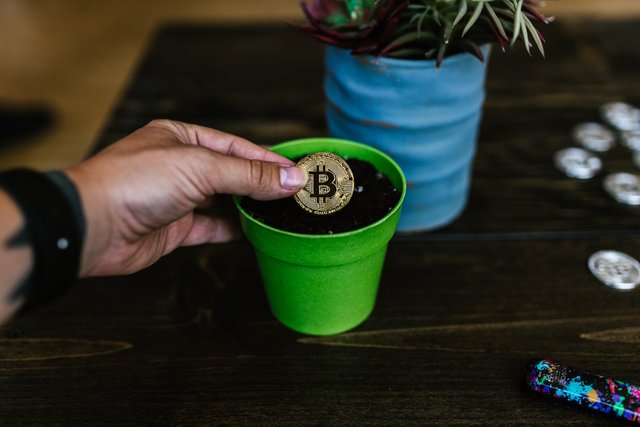Crypto Wallet : Address to Store Digital Assets
Assalamu Alaikum
A cryptocurrency wallet is a digital tool or application that helps users securely store, receive, and send their cryptocurrencies. Unlike a traditional wallet, it is not a physical location, but rather a software or hardware device that proves ownership of your cryptocurrencies. Every crypto wallet consists of two important parts: a public key and a private key.
Public key : This is your wallet address, which you can give to someone else to send you cryptocurrencies. It’s much like your email address—anyone can send you emails, but not access your account, while the public key is visible to everyone on the blockchain.
Private key : This is the master key to your wallet. It’s a secret code that you use to control your cryptocurrencies and sign transactions. It’s so important that if someone else gets their hands on it, they could steal all the funds in your wallet. Therefore, it is extremely important to store this key with the utmost confidentiality and security.
Crypto wallets can be mainly divided into two categories : hot wallets and cold wallets.
Hot Wallet : Wallets that are connected to the internet are called hot wallets. Examples: mobile wallets (e.g. Trust Wallet), desktop wallets and web wallets (e.g. MetaMask).
Advantages : It is easy to use, transactions can be made quickly and can be accessed at all times.
Risks : Since it is connected to the internet, it is vulnerable to hacking and malware attacks. It is generally considered unsafe for storing large amounts of funds.
Cold Wallet : Wallets that are not connected to the internet are called cold wallets. Examples: hardware wallets (e.g. Ledger, Trezor) and paper wallets.
Advantages : It is very secure, because it is offline. There is almost no risk of hacking.
Risks : It is a bit complicated to use and requires the device to be connected to a computer to make transactions. It is less convenient than hot wallets.
Keep your private key or seed phrase secret : The seed phrase (usually a list of 12 or 24 words) that you are given when you set up your wallet is a readable version of your private key. Never store it on any digital device (mobile or computer). Write it down on a piece of paper, keep it in a safe place, and never share it with anyone.
Use two-factor authentication (2FA) : If your wallet or exchange has a 2FA option, be sure to enable it. This will prevent hackers from accessing your account even if they know your password.
Don’t click on suspicious links : Don’t click on links in unfamiliar emails, messages, or social media. These are often phishing scams designed to steal your wallet information.
Keep your computer and mobile secure : Use antivirus software on your devices and keep your operating system up to date.
Hot wallet for small transactions, cold wallet for large funds : You can use a hot wallet for everyday transactions. But if you want to store large amounts of cryptocurrency for a long time, it is safest to use a cold wallet, especially a hardware wallet. A crypto wallet is a secure address for your digital assets. If used and maintained properly, your valuable crypto funds will be safe. Today's discussion concludes here. I hope you've found it interesting. Please share your thoughts on today's topic. Prayers for everyone. May everyone be well. Amen.


Twitter
https://x.com/BokhtiarMr90788/status/1964919070018699472?t=XVH9ZWu_K_9zqXFM0__zjQ&s=19
https://x.com/pussmemecoin/status/1964898341848052185?t=XVH9ZWu_K_9zqXFM0__zjQ&s=19
https://x.com/BokhtiarMr90788/status/1964919522848371162?t=2Z7E3TBm5U7OHDVPDqZqhQ&s=19
https://coinmarketcap.com/community/post/367916645
Crypto Wallet : Address to Store Digital Assets is a great article you have make and shared.